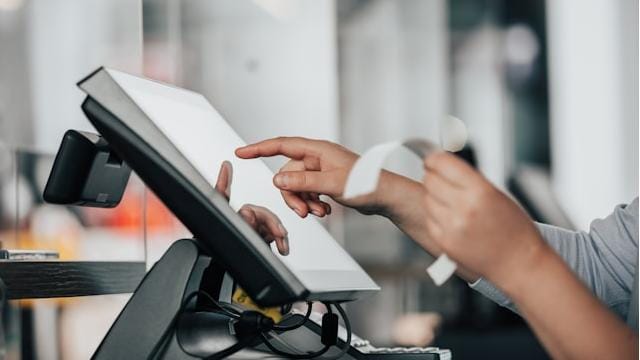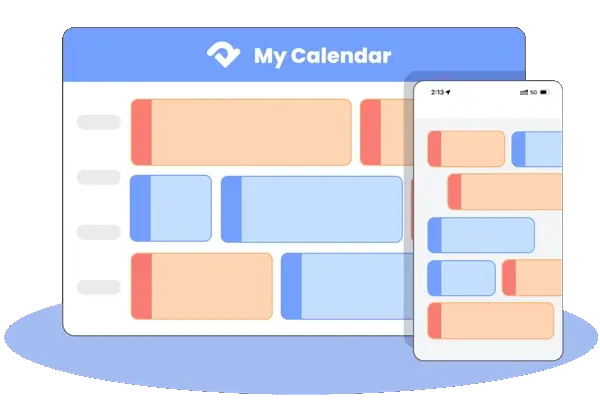Introduction
Managing a successful hotel requires meticulous attention to detail, and nothing is more crucial than keeping your financial records spotless. If your property partners with the world's leading online travel agency, Booking.com, you know the immense value they bring in bookings. But when the end of the month rolls around, the common question remains: "How do I get my receipts and reconcile the finances?"
Getting your Booking.com invoice can be confusing, even for experienced hoteliers. This document is essential for accounting, taxes, and tracking commission payments. This guide explains the simple steps for hotels to get their invoice and clarifies the difference between the documents you need and what your guests need. You can stop struggling with spreadsheets and keep your bookkeeping simple.
What is a Booking.com Receipt?
To properly manage your finances, you first need to understand the exact nature of the document you are looking for.
When a hotelier talks about a "Booking.com receipt," they are almost always referring to the commission invoice issued by the platform. Booking.com functions as an intermediary, generating bookings for your property in exchange for a percentage fee—the commission.
This crucial document is not a receipt for a guest's stay, but rather a detailed summary of the service fee you owe Booking.com. It itemizes the commission charged for every completed reservation facilitated by the platform during a given billing cycle, typically a month.
It’s important to note the financial lifecycle of this document: it begins as a Booking.com invoice when it is issued, stating the amount due. Once the outstanding commission amount is fully paid to Booking.com, this document then officially functions as your commission receipt for your business records. Booking.com issues these invoices to you, the Partner, exclusively—never directly to the guest.
Why Do Hotels Need a Booking.com Invoice?
The need for the Booking.com invoice goes far beyond simple curiosity; it is a fundamental requirement for sound business operations and legal compliance. Ignoring these documents is a guaranteed way to complicate your financial life.
For Tax and Compliance
Every business must report its expenses and revenues accurately to local and national tax authorities. The commission invoice from Booking.com is a necessary document to prove and claim the expense of using the platform's service. Without a proper paper trail, your accountant will struggle to justify these major operational costs, potentially leading to issues during an audit. Using the official Booking.com receipt ensures your deductible expenses are clearly documented, keeping your business fully compliant.
Financial Reconciliation and Accuracy
In a dynamic business like hospitality, mistakes can happen. The detailed invoice allows your finance team to perform a critical check against your internal records. You can cross-reference the reservations listed on the Booking.com document with the reservations in your property management system (PMS). This is essential for verifying two things:
- Correct Commission Calculation: Ensuring you are only being charged commission for guests who actually stayed and completed their booking, not no-shows or legitimate cancellations.
- Payment Status: Confirming that the commission amount was correctly debited from your account or paid by you, and that no double charges have occurred.
This reconciliation process is what turns the invoice into a trusted and accurate commission receipt once payment is confirmed, giving you total peace of mind regarding your biggest OTA partner expense.
How Hotels Obtain the Booking.com Invoice/Receipt
The process for a property owner to access their Booking.com receipt is straightforward and takes place entirely within the Partner Extranet. Forget waiting by the mailbox; the system is designed for digital efficiency.
Step 1: The Initial Notification (Check Your Inbox)
The very first place to look is your email. As a courtesy, Booking.com will send a notification to the email address linked to your Partner account as soon as the monthly commission invoice is generated. This typically happens during the first week of the month following the billing cycle (e.g., the February invoice is ready in early March). If you haven't received it, check your spam folder or verify the correct email address in your Extranet settings. However, relying solely on email is risky.
Step 2: Logging into the Extranet
The definitive source for all your financial documents is the Booking.com Extranet. Log in using your registered credentials. If you manage multiple properties, ensure you select the correct property from the menu.
Step 3: Navigating to the Finance Section
Once logged in, look for the main navigation menu, often labeled with a "Finance" or "Administration" tab. Click on this to reveal the financial tools and reports. Within this section, you will find the critical subsection usually titled "Invoices" or "Documents and Invoices." This is your archive of past and current financial statements.
Step 4: Locating and Downloading the Receipt
On the Invoices page, you will see a comprehensive list of all your issued documents, organized by date. For each entry, you can easily view the invoice amount, the due date, and the current payment status.
To obtain your official Booking.com receipt, simply click the "View" or "Download PDF" option next to the desired invoice. Downloading it as a PDF is the standard practice for passing it along to your accounting software or bookkeeper. Many partners also utilize the CSV download option for easier data import and reconciliation across large volumes of bookings. This downloaded file is the final, official commission receipt you need.
Pro-Tip: Ensure Reservation Accuracy
Before you accept the final invoice, remember that as a hotelier, it’s your responsibility to quickly review the reservations listed. Booking.com’s terms often state that you must report changes like cancellations or no-shows through the Extranet almost immediately after check-out. Making these changes in a timely manner ensures that the final commission receipt you download is 100% accurate, preventing unnecessary charges and saving time on future disputes.
What About Guest Invoices and Receipts?
This is where the most significant confusion occurs. A hotelier must clearly separate the Booking.com commission receipt (for their business expense) from the guest's invoice (for the service provided).
The Hotel is the Invoice Issuer
In almost all jurisdictions, and according to Booking.com’s own policies, the legal service provider is the hotel—not the platform. Therefore, the property is solely responsible for issuing the official tax invoice or sales receipt to the guest for the full value of their stay.
This guest invoice must include all relevant details: the total cost of the room, taxes, any extra charges (like parking or mini-bar), and your property's legal tax identification number. Hoteliers must ensure their property management system (PMS) is set up to issue these documents promptly, either on paper at check-out or electronically via email.
Booking.com Provides Proof of Payment, Not the Tax Invoice
Since Booking.com is just an agent, it can’t issue a tax invoice for the stay.
What they can give a guest, especially if the guest paid them directly, is a “Proof of Payment” or “Payment Confirmation.” This document only shows that the guest paid a certain amount to Booking.com. For many travelers needing to claim expenses, this proof is often enough, but it is not an official tax invoice. When a guest asks you for "the Booking.com receipt," they almost always need the proper tax invoice from you, the hotel.
Conclusion
Mastering the process of retrieving your Booking.com receipt is a simple but vital piece of the financial puzzle for any hotel partner. The document you need is the commission receipt, accessed easily through the Finance tab of your Extranet.
By following these simple steps, you can confidently reconcile your monthly commission invoice, ensure compliance, and maintain a clear, efficient accounting process. Just remember this key point: The Booking.com invoice is for your business records. The final tax receipts for the stay are issued by you to the guest. Keep these two documents separate, and your bookkeeping will run smoothly, leaving you more time to focus on delivering a fantastic guest experience.

